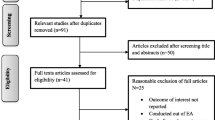Abstract
Background
Late preterm and early term infants are at increased risk of poor growth, behavioral problems, and developmental delays. This study aimed to investigate the impact of maternal and infant characteristics, feeding practices, and breastmilk composition on infant behavior following late preterm and early term delivery, and to evaluate the association between infant behavior and growth.
Methods
Data from 52 Chinese mothers and their late preterm/early term infants participating in the Breastfeed a Better Youngster study were used. Maternal and infant characteristics were collected using questionnaires at 1 week postpartum. Breastmilk macronutrient content was measured using a human milk analyzer, and infant behavior was assessed using a 3-day infant behavior diary at 8 weeks postpartum. Feeding practices were collected at both time points using questionnaires. Multivariate models were used to assess associations between potential predictors and infant behavior and between infant behavior and growth.
Results
Exclusive breastfeeding was associated with greater sleep duration (P = 0.02) and shorter crying duration (P = 0.01). Mothers with a vocational education reported greater distress duration (P = 0.006). Greater colic duration was associated with higher maternal annual income (P = 0.004). There was no significant association between infant behavior and growth (all P > 0.05).
Conclusions
Exclusive breastfeeding might promote more favorable infant behaviors in late preterm/early term infants, while the development of infant distress behaviors was associated with some maternal characteristics (maternal education and annual income). However, due to the limitations of diary methods, determinants of infant behavior should ideally be assessed using more objective measures in larger samples.

Similar content being viewed by others
Data availability
The datasets analyzed during the current study are available from the corresponding author on reasonable request.
References
Popp L, Fuths S, Seehagen S, Bolten M, Gross-Hemmi M, Wolke D, et al. Inter-rater reliability and acceptance of the structured diagnostic interview for regulatory problems in infancy. Child Adolesc Psychiatry Ment Health. 2016;10:21.
Sidor A, Fischer C, Eickhorst A, Cierpka M. Influence of early regulatory problems in infants on their development at 12 months: a longitudinal study in a high-risk sample. Child Adolesc Psychiatry Ment Health. 2013;7:35.
Peacock-Chambers E, Radesky JS, Parker SE, Zuckerman B, Lumeng JC, Silverstein M. Infant regulatory problems and obesity in early childhood. Acad Pediatr. 2017;17:523–8.
Migraine A, Nicklaus S, Parnet P, Lange C, Monnery-Patris S, Des Robert C, et al. Effect of preterm birth and birth weight on eating behavior at 2 y of age. Am J Clin Nutr. 2013;97:1270–7.
De Beritto TV. Newborn sleep: patterns, interventions, and outcomes. Pediatr Ann. 2020;49:e82–7.
Stifter CA, Moding KJ. Understanding and measuring parent use of food to soothe infant and toddler distress: a longitudinal study from 6 to 18 months of age. Appetite. 2015;95:188–96.
Barr RG. Crying as a sign, a symptom and a signal: clinical, emotional and developmental aspects of infant and toddler crying. Cambridge: Cambridge University Press; 2000.
Bartlett E, McMahon C. The cognitive, affective and physiological impact of infant crying: a comparison of two laboratory methodologies. J Reprod Infant Psyc. 2016;34:196–209.
Sullivan R, Perry R, Sloan A, Kleinhaus K, Burtchen N. Infant bonding and attachment to the caregiver: insights from basic and clinical science. Clin Perinatol. 2011;38:643–55.
Wells JC. Parent-offspring conflict theory, signaling of need, and weight gain in early life. Q Rev Biol. 2003;78:169–202.
Cohen Engler A, Hadash A, Shehadeh N, Pillar G. Breastfeeding may improve nocturnal sleep and reduce infantile colic: potential role of breast milk melatonin. Eur J Pediatr. 2012;171:729–32.
Doulougeri K, Panagopoulou E, Montgomery A. The impact of maternal stress on initiation and establishment of breastfeeding. JNN. 2013;19:162–7.
Peacock-Chambers E, Dicks K, Sarathy L, Brown AA, Boynton-Jarrett R. Perceived maternal behavioral control, infant behavior, and milk supply: a qualitative study. J Dev Behav Pediatr. 2017;38:401–8.
Gribble KD, Hausman BL. Milk sharing and formula feeding: infant feeding risks in comparative perspective? Australas Med J. 2012;5:275–83.
Moreira-Monteagudo M, Leirós-Rodríguez R, Marqués-Sánchez P. Effects of formula milk feeding in premature infants: a systematic review. Children (Basel). 2022;9:150.
Zeevenhooven J, Browne PD, L’Hoir MP, de Weerth C, Benninga MA. Infant colic: mechanisms and management. Nat Rev Gastroenterol Hepatol. 2018;15:479–96.
Kusaka R, Ohgi S, Shigemori K, Fujimoto T. Crying and behavioral characteristics in premature infants. J Jpn Phys Ther Assoc. 2008;11:15–21.
Korja R, Huhtala M, Maunu J, Rautava P, Haataja L, Lapinleimu H, et al. Preterm infant’s early crying associated with child’s behavioral problems and parents’ stress. Pediatrics. 2014;133:e339–45.
Jonas W, Atkinson L, Steiner M, Meaney MJ, Wazana A, Fleming AS, et al. Breastfeeding and maternal sensitivity predict early infant temperament. Acta Paediatr. 2015;104:678–86.
Muelbert M, Harding JE, Bloomfield FH. Nutritional policies for late preterm and early term infants—can we do better? Semin Fetal Neonatal Med. 2019;24:43–7.
Stewart DL, Barfield WD, committee on fetus and newborn. Updates on an at-risk population: late-preterm and early-term infants. Pediatrics. 2019;144:e20192760.
Yu JY, Wells J, Wei Z, Fewtrell M. Effects of relaxation therapy on maternal psychological state, infant growth and gut microbiome: protocol for a randomised controlled trial investigating mother-infant signalling during lactation following late preterm and early term delivery. Int Breastfeed J. 2019;14:50.
Yu J, Wei Z, Wells JCK, Fewtrell M. Effects of relaxation therapy on maternal psychological status and infant growth following late preterm and early term delivery: a randomized controlled trial. Am J Clin Nutr. 2022. https://doi.org/10.1016/j.ajcnut.2022.12.002.
Faul F, Erdfelder E, Buchner A, Lang AG. Statistical power analyses using G*Power 3.1: tests for correlation and regression analyses. Behav Res Methods. 2009;41:1149–60.
Cohen S, Kamarck T, Mermelstein R. A global measure of perceived stress. J Health Soc Behav. 1983;24:385–96.
Barr RG, Kramer MS, Boisjoly C, Mcvey-White L, Pless IB. Parental diary of infant cry and fuss behavior. Arch Dis Child. 1988;63:380–7.
Group WHO Multicentre Growth Reference Study Group. WHO Child Growth Standards based on length/height, weight and age. Acta Paediatr Suppl. 2006;450:76–85.
Papageorghiou AT, Kennedy SH, Salomon LJ, Altman DG, Ohuma EO, Stones W, et al. The INTERGROWTH-21st fetal growth standards: toward the global integration of pregnancy and pediatric care. Am J Obstet Gynecol. 2018;218(Suppl 2):S630–40.
Lee K. Crying and behavior pattern in breast- and formula-fed infants. Early Hum Dev. 2000;58:133–40.
Thomas KA. Differential effects of breast- and formula-feeding on preterm infants’ sleep-wake patterns. J Obstet Gynecol Neonatal Nurs. 2000;29:145–52.
Vilar-Compte M, Pérez-Escamilla R, Orta-Aleman D, Cruz-Villalba V, Segura-Pérez S, Nyhan K, et al. Impact of baby behaviour on caregiver’s infant feeding decisions during the first 6 months of life: a systematic review. Matern Child Nutr. 2022;18(Suppl 3):e13345.
Dosani A, Hemraj J, Premji SS, Currie G, Reilly SM, Lodha AK, et al. Breastfeeding the late preterm infant: experiences of mothers and perceptions of public health nurses. Int Breastfeed J. 2017;12:23.
Mohebati LM, Caulfield LE, Martinez H. How much does your baby cry? Expectations, patterns and perceptions of infant crying in Mexico. Bol Med Hosp Infant Mex. 2014;71:202–10.
Wolke D, Bilgin A, Samara M. Systematic review and meta-analysis: fussing and crying durations and prevalence of colic in infants. J Pediatr. 2017;185:55–61.e4.
Martini J, Petzoldt J, Knappe S, Garthus-Niegel S, Asselmann E, Wittchen HU. Infant, maternal, and familial predictors and correlates of regulatory problems in early infancy: the differential role of infant temperament and maternal anxiety and depression. Early Hum Dev. 2017;115:23–31.
Yalçın SS, Örün E, Mutlu B, Madendağ Y, Sinici İ, Dursun A, et al. Why are they having infant colic? A nested case-control study. Paediatr Perinat Epidemiol. 2010;24:584–96.
Wang A, Guo D. Technical and vocational education in China: enrolment and socioeconomic status. J Vocat Educ Train. 2018;71:538–55.
Redsell SA, Atkinson P, Nathan D, Siriwardena AN, Swift JA, Glazebrook C. Parents’ beliefs about appropriate infant size, growth and feeding behaviour: implications for the prevention of childhood obesity. BMC Public Health. 2010;10:711.
Suklert K, Phavichitr N. Incidence and associated factors of infantile colic in Thai infants. Pediatr Gastroenterol Hepatol Nutr. 2022;25:276–82.
Tang K, Wang H, Tan SH, Xin T, Qu X, Tang T, et al. Association between maternal education and breast feeding practices in China: a population-based cross-sectional study. BMJ Open. 2019;9:e028485.
Acknowledgements
The authors would like to express our sincere gratitude to all the investigators and participants who contributed to this study.
Funding
The research was conducted as part of a PhD and expenses were covered from the research group’s funds. All research at Great Ormond Street Hospital NHS Foundation Trust and UCL Great Ormond Street Institute of Child Health is made possible by the NIHR Great Ormond Street Hospital Biomedical Research Center. The views expressed are those of the author(s) and not necessarily those of the NHS, the NIHR or the Department of Health.
Author information
Authors and Affiliations
Contributions
ZX identified the research question, established the hypothesis, contributed to the drafting of the study protocol, performed the data analyses, and drafted the manuscript with input from the co-authors. YJ and FM identified the research question, established the hypothesis, contributed to the drafting of the study protocol, and established the study location for recruitment and data collection. WZ established the study location for recruitment and data collection. All authors read and approved the final manuscript.
Corresponding author
Ethics declarations
Ethical approval
Ethical approval was obtained from the Research Ethics Committee of Beijing Children’s Hospital (ID: 2018-167) and University College London (ID: 12681/002). All participants provided written informed consent at recruitment.
Conflict of interest
FM receives an unrestricted donation from Philips for research on infant nutrition. All other authors declare no conflicts of interest.
Additional information
Publisher's Note
Springer Nature remains neutral with regard to jurisdictional claims in published maps and institutional affiliations.
Rights and permissions
Springer Nature or its licensor (e.g. a society or other partner) holds exclusive rights to this article under a publishing agreement with the author(s) or other rightsholder(s); author self-archiving of the accepted manuscript version of this article is solely governed by the terms of such publishing agreement and applicable law.
About this article
Cite this article
Zhang, X., Yu, J., Wei, Z. et al. Determinants of infant behavior and growth in breastfed late preterm and early term infants: a secondary data analysis. World J Pediatr 19, 983–991 (2023). https://doi.org/10.1007/s12519-023-00696-9
Received:
Accepted:
Published:
Issue Date:
DOI: https://doi.org/10.1007/s12519-023-00696-9




